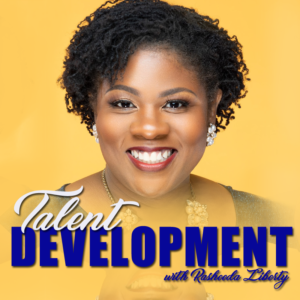
Rasheeda Liberty – Amazon Executive
In 1991 I was in the first grade. I barely knew what my favorite color was, let alone what I wanted to be when I grew up. In 1991 Rasheeda Liberty, who was Rasheeda Hakeem at the time, was starting her career in banking as a financial analyst.
Over time, her professional experience exposed the legal side of banking – making corporate law (in banking) her dream. She pursued a dual degree that would have ended in a Juris Doctorate and Master of Business (MBA). Regrettably, she didn’t finish the law school portion of the degree but has experienced incredible success with an MBA.
From financial analyst to financial controller, today, Rasheeda is a regional finance director for Amazon. In this position, the highest-ranking African American female in North America Customer Fulfillment Finance, she is responsible for shaping financial operations and drive operational excellence for all Central Region Robotics Facilities, encompassing 10,000 associates and partnerships with 500 leaders (Operations, HR, Safety, Procurement, Loss Prevention, Engineering, Learning, and Staffing).
In addition to her extremely demanding career, family, and social life, Rasheeda Liberty is also the Vice President of Sigma Gamma Rho Sorority, Inc. – the company I work for. In the many positions that she has heard as a member of the board of directors, I first saw how she built and developed leaders as the Regional Director for one of the organization’s largest regions. I am a product of her leadership and talent development. While I have had several one on one conversations with her leading up to this day, I felt that interviewing her for this project would bring variety to the submissions because while Rasheeda doesn’t own the companies that she has helped shape, she has led those companies and their leaders to next-level success.
I wanted to know more about how she has mastered the art of acquiring, identifying, developing talent. Every company needs to know this.
When did you become the teacher of talent development and not just the student?
She tells me about how she has always been a natural leader of peers.
From a career stand-point – she was a leader among her peers. Five years into her career, her boss asked her to lead the team. This was the first time she had the title, the office, and direct reports. This was also the first time she had hiring responsibilities. She was still learning, but it was not time to be the teacher.
What was the most difficult part about your transition to becoming a lead?
Initially, the biggest mistake was valuing friendship over work relationships – in a lead capacity. Those once friendships that she established with her peers had to change. She realized that some of her decisions and messaging based on personal relationships altered the effectiveness that she had as a leader.
You have done really well with identifying talent, what is your technique?
She hires people that she has never met. This allows her to have a clean slate to get to know the people she is working with. In the beginning, it is as simple as a conversation – get to who they are first, not how they work – that will come later. During this conversation, it is important to ask questions that will reveal what inspires them to work, listen to how they solve problems and how they react to things.
The first few conversations allow her to identify the gaps. Do they connect with people well? Do they deliver results? Can the earned trust from those that they work with? Once you identify behaviors, you can then focus on talent.
What is your biggest success story with talent development?
She had an employee that was great on paper, on time to work, but still lacked movement in her career. To develop her, she looked at her “hall file”. If you aren’t familiar with the term, a hall file is the professional feedback that someone is getting, but not always directly.
The feedback was that she lacked professional maturity behind the scenes.
As a developer, Rasheeda took time and told her the truth about her “issue”. That direct report asked Liberty to be her accountability partner and was open to the feedback.
To change the narrative, along with changed behavior on the part of the direct report, Liberty sold her to people. Over time people started to see her differently. After three (3) denied promotions – before and after the feedback began, eventually, the direct report was offered a promotion.
How do you communicate to someone that you see potential in them that they may not have discovered within themselves yet?
Liberty reflects for a moment. When she spoke again, she said (this skill) is much less about what is said to someone and more about what I allow them to do. Without telling them what I am doing, I put them in places to lead and then (I) direct them on how to evolve. This allows them to test the skill first, naturally without the pressure of knowing they are being stretched.
“The more I give you, the more I trust you.”
I chuckled. Her description of what she does to help leaders identify their potential and develop them for next level evolution was familiar to me because once upon a time I reported directly to her. She was a volunteer member of the board of directors and I was a paid staff member. Under her direction, I always felt like she was giving me A LOT of work! Also, under her direction, I grew as a professional. My professional growth had a nice way of spilling over into my personal growth.
This is a skill that she tried, and it works. It wasn’t something that she was taught.

